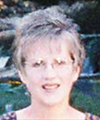Timing is important. It takes time to adjust to a major upset, such as being diagnosed with cancer. At some point, the frenzy starts to calm down. After some decisions are made, things will gradually fall into a routine. While I was undergoing chemotherapy, I did not write in a journal. However, I did write an article for The Breast Cancer Book of Strength and Courage. The first version I submitted was a rambling account that the editor rejected, and rightfully so. But rewriting it helped me put my experience into a coherent story that made sense to me, and to Judie Fertig Panneton, the long-suffering editor who compiled the anthology. I didn’t realize it at the time but I stayed with the problem until I achieved insight.
I wrote an account about shopping for a wig and losing my hair to chemotherapy. The woman who fitted my wig sent me away with more than new hair. She included a new attitude free of charge. She referred to the hair piece as "your new hair," adamantly refusing to call it a wig. Her careful description taught me a valuable lesson—the words we use to describe life’s obstacles makes them impossible or easier to overcome.
Then, when I looked in the mirror—whether I saw a redhead or bald dome—I was reminded of her kindness. The words I've used and written since then have helped keep me healthy, body and mind. It's an amazing thing to learn, that I can write about upheavals and make them better.






